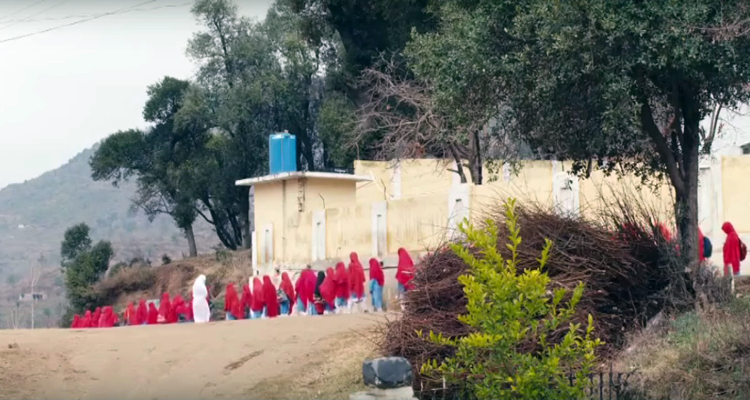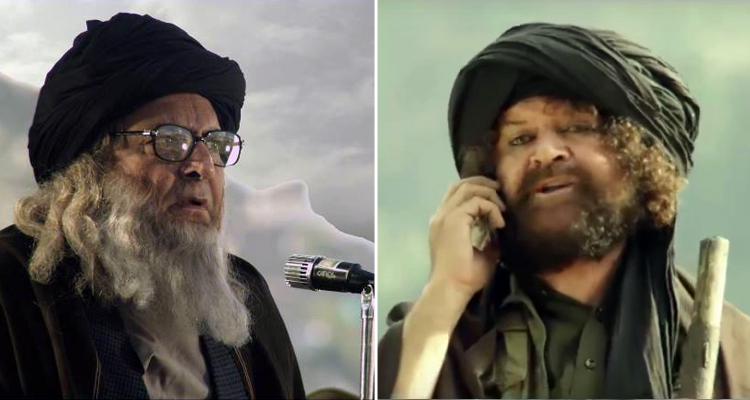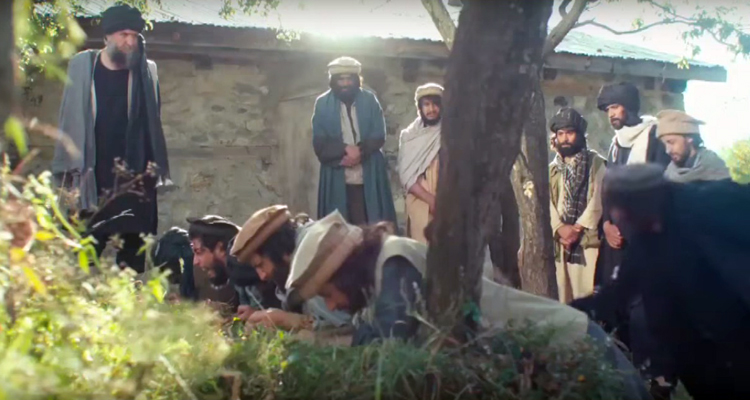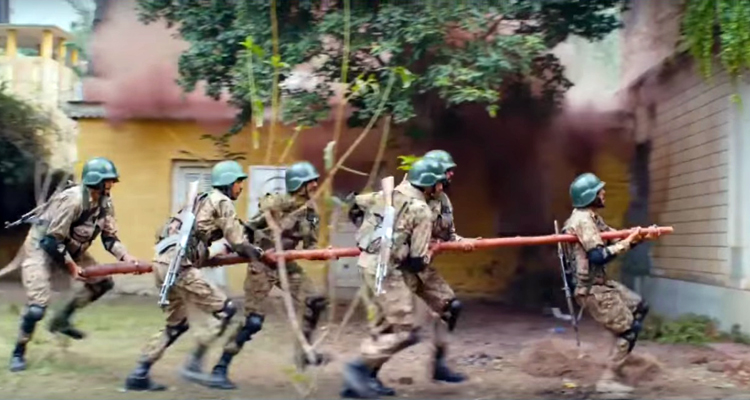
Written by: Dr. Dushka H. Saiyid
Posted on: July 25, 2016 |  | 中文
| 中文
Official poster of 'Revenge of the Worthless'
The film weaves a story around actual events of the 2009 Taliban insurgency in Swat. The peaceful valley of Swat, known for its breathtaking land scape and orchards of fruit, descended into a vortex of destructive violence as the Taliban took over the valley and unleashed a reign of terror: girls’ schools were bombed, female teachers killed, video and barbers’ shops shut down, music and dance banned. Summary executions became the order of the day for those defying their commands.

Jamal Shah, the veteran actor of the small screen has made his directorial debut with the Revenge of the Worthless, authored its screenplay, and brought gravitas to the lead role of Zarak Khan, a member of the landed gentry of Swat. He becomes a symbol of resistance to the Taliban, an embodiment of tradition and culture as he hosts musical soirees in his house; a complete antithesis of the misogynistic and ignorant barbaric hordes that hold the valley in their deadly embrace. Firdous Jamal, as the weak and aging Sufi Mohammed, and Ayub Khoso as the ruthless, cold and calculating Qudratullah, representing Fazlullah, give convincing performances.

The Taliban’s calculated use of violence to terrorize the populace, negotiations to gain time and consolidate their hold while the government vacillated, is a study in the successful rise of fascism. The Commissioner, the representative of the government in the area, is shown to be a treacherous collaborator and a willing tool in the hands of the new power brokers. I’m reminded of Bertolluci’s classic film about the rise of fascism in Italy, The Conformist.

Maira Khan plays the key role of Shabana, a popular singer of Pushto songs. She earns the ire of the Taliban by continuing to sing when they had banned music and dancing. Her role seems to have been inspired by a dancer from Mingora by the same name, who was killed in January 2009 for defying the Taliban ban on dancing. An interesting character in the film is that of a beautiful young man who finds himself inadvertently in the midst of the Taliban, and becomes a prey to their sexual advances.
The pusillanimous dealings of the provincial and central government with Sufi Muhammad involving prolonged negotiations were used by Qudratullah to strengthen his grip on the valley. When the army finally arrived, Swat had already paid heavily in the loss of lives and property.

The music score by Mehdi Raza is haunting, especially Jamal Shah’s rendition of Ma Khpala Tura (Broke My Sword), although the Pushto rap song, Khamakha, was a little incongruous in an otherwise serious movie.
The title of the film is not likely to attract many viewers. An English name for a film the dialogue of which is in Urdu or Pushto, doesn’t make sense. Since the film is about Pakistan’s recent history, people would have a natural interest in a story that ended happily with the imposition of the rule of law, and the ouster of the bad guys.
The cause of the Pakistani film industry is ill-served by the cartel of cinema owners. They continue to slot Pakistani films at such awkward times that very few would muster up the will to see them. In Islamabad the show timing was only 11 pm on Fridays and 10:15 pm on other days. Jami Mahmood had complained of a similar problem when Moor came out in Karachi. It is time the government stepped in to give support to the nascent Pakistani film industry struggling to revive. The cinema owners’ profit motive cannot be allowed to overrule national interest.
This action drama is well paced with never a dull moment, and given its dark subject matter, touches a chord with every Pakistani.
You may also like: